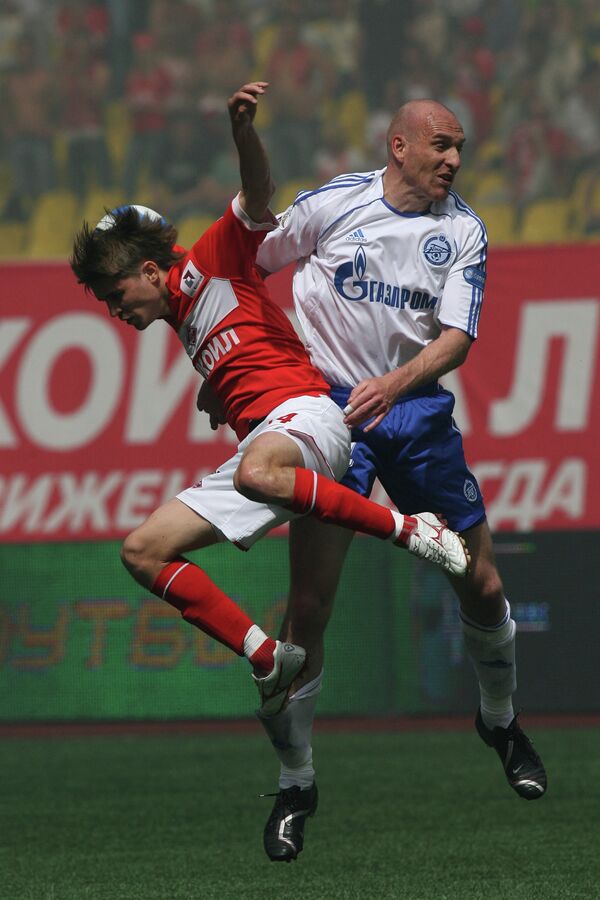MOSCOW, April 2 (R-Sport) - Former Norway international defender Erik Hagen was quoted as saying on Wednesday that he and his teammates each paid a $3,000 bribe to a referee in a European club match during his time at Russian side Zenit St. Petersburg.
Hagen, 38, played for Zenit mainly under Dutch coach Dick Advocaat from 2005 through 2008 and left four months before the side won the 2008 UEFA Cup.
In an interview to Norwegian outlet Verdens Gang, Hagen made a flurry of corruption claims regarding Russian football, saying the outcome of the national championship was pre-determined and that he was pressured into giving a quarter of a potential $12,000 win bonus to the referee ahead of a European match.
"Yes, I gave away $3,000 of my win bonus to the referee, me too," the newspaper's online version at vg.no quoted Hagen as saying. "Then a teammate came up to me and said that this would never happen again."
It was unclear which match Hagen was referring to. He was mainly used as a substitute in the first part of the 2008 UEFA Cup-winning campaign, but played a bigger role in the 2006 campaign that saw Zenit eliminated at the quarterfinal stage.
Zenit spokesman Evgeny Gusev told R-Sport: "We are extremely surprised by Hagen's words. We always follow and have always followed the principles of fair play, and we only show what we're worth on the field of play."
Contacted by R-Sport, a UEFA spokesperson refused to comment immediately on the allegations.
"We don't comment on individual matches, unless disciplinary decisions have been taken," a UEFA statement issued to R-Sport said.
In general, the body said it continues to hold a zero-tolerance approach to fixing.
"We have punished and will continue to punish very harshly anyone who is manipulating the result of a match. We have collaborated with police authorities to make sure that these criminal activities are tackled, and that this cancer is eradicated from the game."
In July, the Russian parliament passed a bill that toughens the maximum punishment for match-fixing to seven years in prison. Russia is holding the 2018 World Cup.
The FIFPro international players' association claimed in 2012 that as many as one in ten footballers in Russia had at some point received an offer to fix a game.
The statistic was released as part of FIFPro's Black Book, a report into football problems based on an anonymous survey of over 3,000 players in Eastern and Central Europe.
Of 177 players in Russia who answered, 10.2 percent said they had been approached to consider match-fixing, FIFPro said. Russia placed fourth in its list of 12 countries surveyed, behind only Kazakhstan, Greece and Bulgaria.
In total, 43.2 percent of players in Russia said they were aware of match-fixing in their division, ranking Russia behind only the Czech Republic, Kazakhstan and Greece, FIFPro said.
UPDATES with details, background



